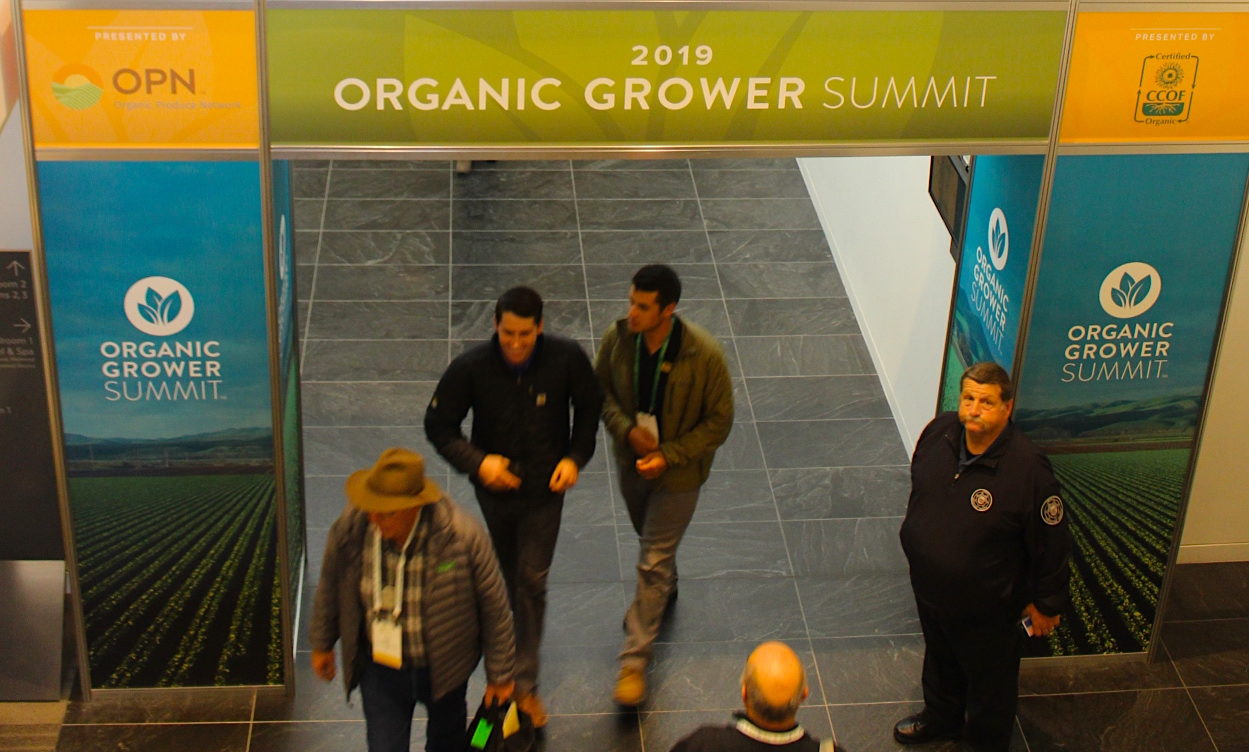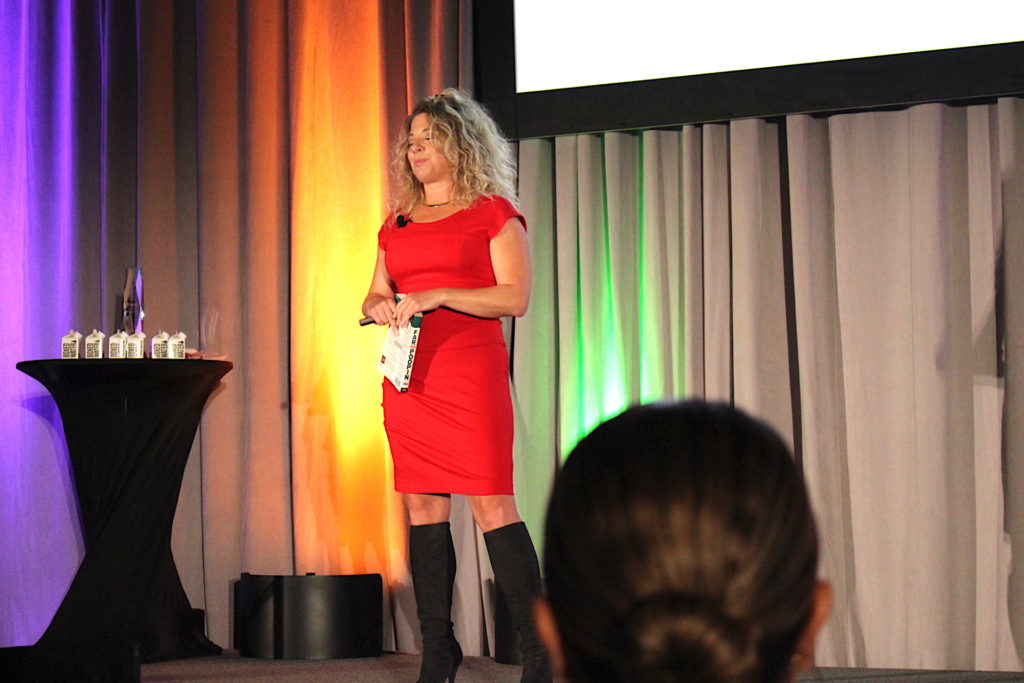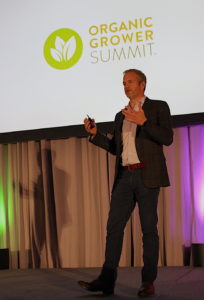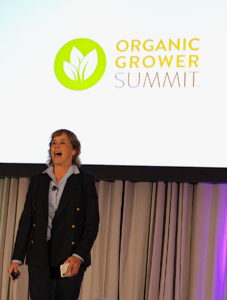
Dec 18, 2019
Organic Grower Summit fires up industry
Agricultural visionaries encouraged organic growers Dec. 5 at the Organic Grower Summit in Monterey, California, as the industry honored a family of farmers as its 2019 growers of the year.
Organic Grower Summit this year had more than 700 attendees – 200 of whom were growers – who stayed for the two-day event that included a trade show, networking opportunities, education sessions and panel discussions.
Three keynote sessions Dec. 5 included TedTalk-style presentations from three different visionaries in agriculture, including Indigo Ag President and CEO David Perry, Titan Hemp and Titan Bioplastics founder Amy Ansel, and Kat Taylor, founding director of the TomKat Ranch Educational Foundation.
Hemp horizons

Ansel spoke openly about both short-term difficulties and the long-term promise of marketing hemp as a commodity for its many different uses.
“I’m not here to tell you guys it’s great, because it’s not,” she said. She urged growers not to rush into hemp production, and to first secure a buyer.
“Walk, don’t run – even crawl,” she said: Hemp is widely misunderstood and the supply chain is still being established.
She used her own experience as an example: Early on in Titan Hemp, she encountered manufacturers’ misconceptions about hemp as a material. The group has since formed Titan Plastics to produce bioplastics derived from hemp, and she gave a demonstration about their hemp-derived products stand up against other bioplastics such as Polylactic acid (PLA).
“We’re here to stay,” she said. “We’ve got a product.”
Ag for climate

Perry briefly introduced his company, Indigo, but spent the majority of his time talking about the company’s Terraton initiative, to take one trillion tons of carbon out of the atmosphere.
While some efforts have focused on “direct air capture” machinery to scrub carbon dioxide from the air, plants do the same thing, and Perry suggested the idea of paying growers to put carbon “back into the soil.”
He floated the idea of paying growers $15-$20 per ton of carbon harvested by plants, with the understanding that growers could take 2-3 tons out per acre per year by using sustainable practices such as cover crops, no-till cultivation and crop rotation.
“It appears like agriculture can play a really big role in reducing climate change,” he said.
Organic exhortation

Taylor’s presentation seemed to fire up true believers in organic agriculture and sustainable growing.
She said organic agriculture practices could help offset greenhouse gas emissions.
“Regenerative management focuses on healthy plants, soils and animals, respecting that soil is not a vessel into which we put inputs, but a living system that can generate essential ecosystem services,” Taylor said.
She spoke about her philosophy or narrative about regenerative agriculture and stewardship of the earth.
“I believe regenerative farmers and ranchers will be the heroes … who help us to avert climate disaster and restore product prosperity,” she said. “Agriculture is the dominant way we tend to the earth, let’s make sure it’s the way we care for each other as well.”
A family tradition

CCOF and the Organic Produce Network honored a rice-grower, Lundberg Family Farms for its longstanding commitment to organic agriculture.
The Grower of the Year award has been sponsored for three years by farm equipment company AGCO – previous winners were Thaddeus Barsotti of Capay Organic in 2018 and Vernon Peterson of Peterson Family Farms in 2017.
CEO Grant Lundberg was on hand to receive the award, along with various members of the family.
“In 1937, my grandpa and grandma Albert and Frances were farming in central Nebraska in the Dust Bowl,” Lundberg said. “They were corn and cattle farmers and they experienced environmental catastrophe.”
The experience motivated the family to move to California and instilled in them a need to take care of the soil, Grant Lundberg said. His grandparents would leave stubble in the field rather than burn it. In 1969, the family was first approached about growing organic, short-grain brown rice.
“We’ve had a number of failures – in fact, maybe more failures than successes, but we can produce organic rice successfully,” he said. Today, the company has 40 family owners and 25 rice and organic quinoa growers in northern California. “Thank you for this recognition. The whole family and company is excited about it, and appreciate all of us working together to innovate and conserve for a healthy world.”









